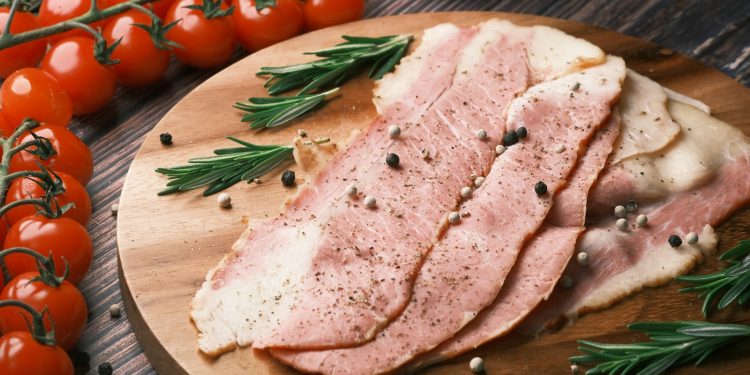High cholesterol is a common health issue that can increase your risk of heart disease and stroke. Many people turn to medications to manage their cholesterol levels, but there are also natural ways to lower cholesterol through lifestyle changes. By focusing on diet, exercise, and other healthy habits, you can help keep your cholesterol in check and improve your overall cardiovascular health. Here are some effective strategies for naturally lowering cholesterol levels.
1. Eat More Soluble Fiber
Soluble fiber is a powerful ally in the fight against high cholesterol. It works by binding to cholesterol particles in the digestive system and removing them from the body before they enter the bloodstream. Foods that are rich in soluble fiber include oats, barley, legumes, apples, and citrus fruits. Studies have shown that consuming soluble fiber on a regular basis can help reduce LDL cholesterol—often referred to as the “bad” cholesterol.
Adding oats to your breakfast routine, incorporating beans into soups and salads, or snacking on an apple are simple ways to increase your soluble fiber intake. Soluble fiber not only helps lower cholesterol but also promotes gut health and can keep you feeling fuller for longer, which may support weight management.
2. Choose Healthy Fats
Not all fats are created equal. Saturated fats, found in red meat, full-fat dairy products, and processed foods, can raise LDL cholesterol levels. On the other hand, unsaturated fats—particularly monounsaturated and polyunsaturated fats—can help lower LDL cholesterol and even raise HDL (“good”) cholesterol.
Healthy fats are found in foods like avocados, nuts, seeds, olive oil, and fatty fish such as salmon and mackerel. Omega-3 fatty acids, a type of polyunsaturated fat, are particularly beneficial for heart health. Including fatty fish in your diet a few times a week, using olive oil for cooking, and snacking on a handful of almonds are great ways to increase your intake of healthy fats while reducing unhealthy saturated fats.
3. Cut Back on Trans Fats
Trans fats are some of the worst fats for your cholesterol levels. They not only raise LDL cholesterol but also lower HDL cholesterol, which can increase your risk of heart disease. Trans fats are often found in processed and fried foods, as well as margarine and baked goods made with partially hydrogenated oils.
To reduce your intake of trans fats, check food labels and avoid products that list “partially hydrogenated oil” as an ingredient. Opt for healthier cooking methods like baking, grilling, or steaming instead of frying, and choose whole, unprocessed foods whenever possible.
4. Increase Your Physical Activity
Exercise is a powerful tool for lowering cholesterol naturally. Physical activity can help raise HDL cholesterol, the “good” cholesterol, while also lowering LDL cholesterol and triglycerides. Exercise also supports weight loss, which can further improve cholesterol levels and reduce the risk of cardiovascular disease.
The American Heart Association recommends at least 150 minutes of moderate-intensity aerobic exercise or 75 minutes of vigorous exercise per week. Activities like brisk walking, jogging, cycling, and swimming are all excellent options. Strength training exercises, such as lifting weights or using resistance bands, can also be beneficial for overall health and fitness.
5. Incorporate More Plant Sterols and Stanols
Plant sterols and stanols are naturally occurring compounds found in plants that can help lower cholesterol levels. They work by blocking the absorption of cholesterol in the digestive system. Foods like nuts, seeds, whole grains, and legumes contain small amounts of plant sterols and stanols, but you can also find fortified products like margarine, orange juice, and yogurt that have higher concentrations.
Studies have shown that consuming just 2 grams of plant sterols or stanols per day can help reduce LDL cholesterol by up to 10%. Including these compounds in your diet, along with other cholesterol-lowering strategies, can have a positive impact on your cardiovascular health.
6. Limit Added Sugars and Refined Carbohydrates
Diets high in added sugars and refined carbohydrates can contribute to higher levels of LDL cholesterol and triglycerides. When you consume excess sugar, your body converts it into triglycerides, which are stored in fat cells and can increase your risk of heart disease. Refined carbohydrates, such as white bread, pastries, and sugary snacks, can also lead to spikes in blood sugar and contribute to weight gain, which can negatively affect cholesterol levels.
To naturally lower cholesterol, focus on eating whole grains, fruits, vegetables, and other nutrient-dense foods. Replace sugary beverages with water or unsweetened tea, and choose snacks like fresh fruit or nuts instead of processed treats. Reducing your intake of added sugars and refined carbs can not only help lower cholesterol but also support overall health and weight management.
7. Quit Smoking
Smoking is a major risk factor for heart disease, and it can also negatively affect cholesterol levels. Smoking lowers HDL cholesterol and damages the lining of the arteries, making it easier for cholesterol to build up and form plaques. Quitting smoking can help improve HDL cholesterol levels and reduce the risk of developing heart disease.
While quitting smoking can be challenging, the benefits are substantial. Within just a few weeks of quitting, your HDL cholesterol levels will begin to improve, and your overall cardiovascular health will benefit. If you need support, consider talking to your healthcare provider or joining a smoking cessation program to help you quit for good.
8. Maintain a Healthy Weight
Being overweight or obese is associated with higher levels of LDL cholesterol and triglycerides, as well as lower levels of HDL cholesterol. Losing even a small amount of weight can have a significant impact on cholesterol levels and reduce the risk of heart disease. A combination of a healthy diet, regular exercise, and portion control can help you achieve and maintain a healthy weight.
Focus on eating nutrient-dense foods that provide essential vitamins and minerals while keeping calories in check. Reducing portion sizes, avoiding sugary drinks, and increasing physical activity are all effective strategies for achieving a healthy weight and improving cholesterol levels.
9. Drink Alcohol in Moderation
Moderate alcohol consumption has been linked to higher levels of HDL cholesterol, but excessive drinking can lead to serious health problems, including high blood pressure, liver damage, and increased cholesterol levels. If you drink alcohol, do so in moderation—this means no more than one drink per day for women and two drinks per day for men.
Red wine, in particular, has been associated with potential heart health benefits due to its polyphenol content, but it is important to remember that the risks of excessive alcohol consumption far outweigh any potential benefits. If you do not already drink alcohol, there is no need to start for the sake of your cholesterol levels.
10. Add Garlic to Your Diet
Garlic has long been known for its health benefits, including its potential to lower cholesterol levels. Studies have shown that garlic may help reduce total cholesterol and LDL cholesterol, although the effects are modest. Garlic also has anti-inflammatory and antioxidant properties that can benefit overall cardiovascular health.
Adding fresh garlic to your cooking is an easy way to incorporate it into your diet. You can use garlic in sauces, marinades, soups, and stir-fries to add flavor while supporting heart health. Garlic supplements are also available, but it’s always best to consult with a healthcare professional before starting any new supplement regimen.
11. Manage Stress
Chronic stress can contribute to higher cholesterol levels and an increased risk of heart disease. When you are stressed, your body releases cortisol, a hormone that can lead to increased cholesterol and triglyceride levels. Finding healthy ways to manage stress is an important part of maintaining healthy cholesterol levels.
Activities like yoga, meditation, deep breathing exercises, and spending time in nature can help reduce stress and improve overall well-being. Engaging in hobbies, spending time with loved ones, and practicing mindfulness are also effective ways to manage stress and support heart health.
Making Lifestyle Changes for Better Heart Health
Lowering cholesterol naturally is all about making sustainable lifestyle changes that promote overall health. By focusing on a heart-healthy diet, regular exercise, and other positive habits, you can reduce your cholesterol levels and lower your risk of heart disease. It’s important to remember that everyone’s body is different, and what works for one person may not work for another. Consult with your healthcare provider before making significant changes to your diet or exercise routine, especially if you have any underlying health conditions.















Discussion about this post